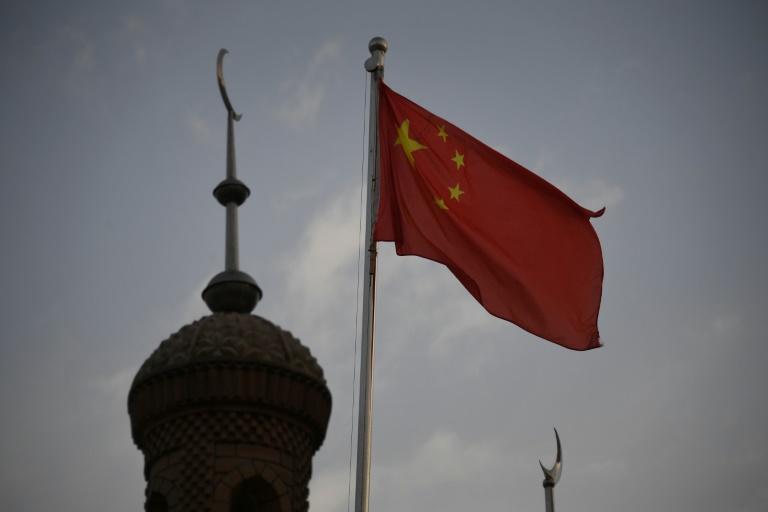The UN human rights chief met China’s top diplomat Monday as she began a six-day trip to the country that will include the remote Xinjiang region, stirring fears over access and the propaganda value the visit offers to the Chinese Communist Party.
The tour by Michelle Bachelet marks the first by the UN’s top rights official in nearly two decades and comes as Beijing stands accused of widespread abuses of Muslims in far-western Xinjiang.
The ruling Communist Party is alleged to have detained over one million Uyghurs and other Muslim minorities there under a years-long security crackdown the United States calls a “genocide”.
China vociferously denies the accusations, calling them “the lie of the century”.
“I look forward to the exchanges I will have with many different people during my visit. I will be discussing some very important issues and sensitive issues. I hope this will help us build confidence,” Bachelet said at a meeting with Chinese Foreign Minister Wang Yi in Guangzhou.
Bachelet conducted virtual meetings with the heads of around 70 diplomatic missions in China on Monday, according to diplomatic sources in Beijing, who said she gave assurances over her access to detention centres and rights defenders.
Later in the week, she is due to travel to the Xinjiang cities of Urumqi and Kashgar.
Welcoming Bachelet, foreign ministry spokesman Wang Wenbin said her trip was taking place in a “closed-loop” due to the pandemic and both sides agreed not to have reporters trail the visit.
She is expected to meet Chinese leaders and “have extensive exchanges with people from various sectors”, Wang said, without giving more details.
UN officials have been locked in negotiations with the Chinese government since 2018 in a bid to secure “unfettered, meaningful access” to Xinjiang.
But fears have swirled of a whitewash offering a tightly controlled glimpse into life in the region, which China says it has pacified with “re-education centres” and uplifted with an economic rejuvenation drive.
– Access or cover-up? –
The United States led criticism ahead of her trip, saying it was “deeply concerned” that Bachelet had failed to secure guarantees on what she can see.
“We have no expectation that the PRC will grant the necessary access required to conduct a complete, unmanipulated assessment of the human rights environment in Xinjiang,” State Department spokesman Ned Price told reporters, referring to the People’s Republic of China.
Instead of a thorough probe into alleged abuses, rights advocates also fear Bachelet is in store for a stage-managed tour.
Her visit will be “a running battle against Chinese government efforts to cover up the truth”, said Agnes Callamard, secretary general of Amnesty International.
“The UN must take steps to mitigate against this and resist being used to support blatant propaganda.”
The last such visit, in 2005, came when Beijing was keen to soften its global image as it prepared to host the 2008 Olympic Games — but much has changed since then.
President Xi Jinping has become the most authoritarian Chinese leader in a generation and is working on securing an unprecedented third term at the end of this year.
In addition to mass detentions, Chinese authorities have waged a campaign of forced labour, coerced sterilisation and the destruction of Uyghur cultural heritage in Xinjiang, researchers and campaigners say.
Chinese state media has given muted coverage of the visit so far.
But an article on Sunday by state news agency Xinhua lauded the country’s “remarkable achievements in respecting and protecting human rights”.
A more combative article on CGTN — the English-language arm of China’s state broadcaster — blasted what it called the West’s “false Xinjiang narrative” and questioned the basis of allegations.










